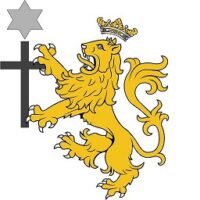Category: Middle Ages
-
The Anti-Christ & the Liberal-Democratic Order
In an interesting turn of phrase, St. Paul indicates in Thessalonians 2 that the Anti-Christ will come, not as an idol, but as an iconoclast: “He who opposes and exalts himself against everything that is called God and religion, just as he will sit in the Temple of God, as God, and will show concerning…
-
The Valorization of the Middle Ages
Occasionally the question comes up, as it has again this week, as to why we focus so much on the spirituality, symbolism, social structures, and history of the Middle Ages. Although the answer can be pieced together from various posts, it may be good to summarize it in one place. Clearly, the primary authors who…
-
Making the Modern Mind
Sometimes it helps to meditate on what is good by looking at the opposite, at least for those of us who only have “intimations of deprivation” and have not yet found our true center. This kind of “cautionary tale” meditation or meditating “by negative example” is very easy in Western societies at present. One need…
-
Middle Earth Once More
“By way of such aspects, we see—it is clear—in the Middle Ages an awakening of the true forces already acting in Nordic-Aryan Romanity, of its true solarity, propitiated from such a resurgence or rebirth from a new contribution of Aryan blood…” Gornahoor translating Evola, on Cesaro Indeed, a tremendously sophisticated defense of the very opposite…
-

Recapitulation
The doctrine of Recapitulation can be deduced from that of karma and sexual union.
-
Deep Materiality
Tomberg remarks in his Meditations that Christianity places the locus of sin, not in the body or material existence (such as he thinks is implied to a degree by Eastern metaphysic), but in the soul. The body, then, as such, becomes rather a focus of redemption and revelation, rather than something which needs to be…
-
Sun, Moon, & Stars
I want to remark on something in Tomberg’s Meditations, in comparison between Chapter 18 (The Moon) & Chapter 19 (The Sun). Besides many other side meditations of delight (including a short, extremely well put defense of medieval scholasticism, which he says was a marriage of wisdom and intelligence to produce intuition), Tomberg gives us two…
-

Phenomenology of the Medieval Mind
Facts become valuable only in so far as they enable us to enter more fully into the consciousness of our ancestors by realising how such a universe must have affected those who believed in it. The recipe for such realisation is not the study of books. You must go out on a starry night and…
-

An Old Model of the Universe
To understand the Whole, it is necessary to account for all phenomena.

